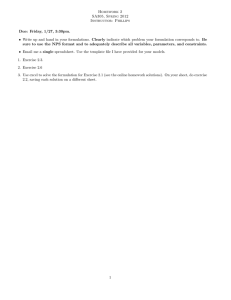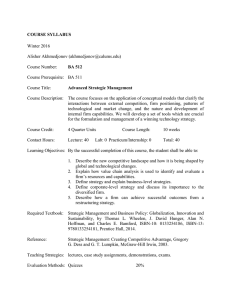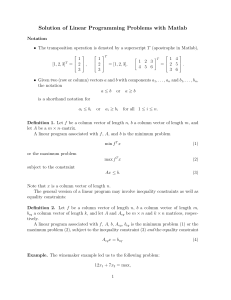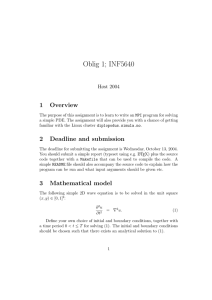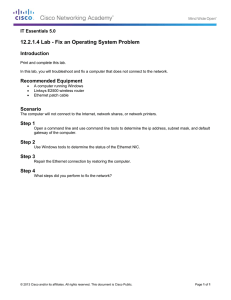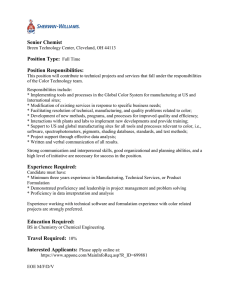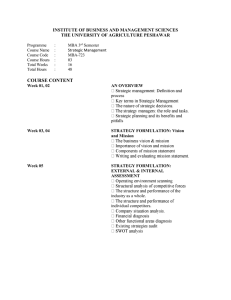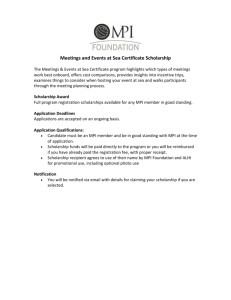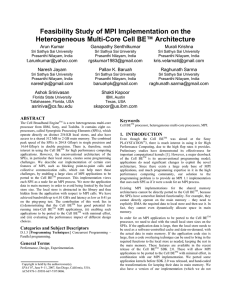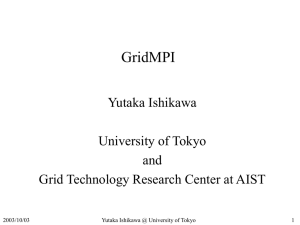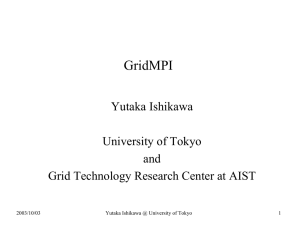CIS5930 Advanced Topics in Parallel and Distributed Systems
advertisement
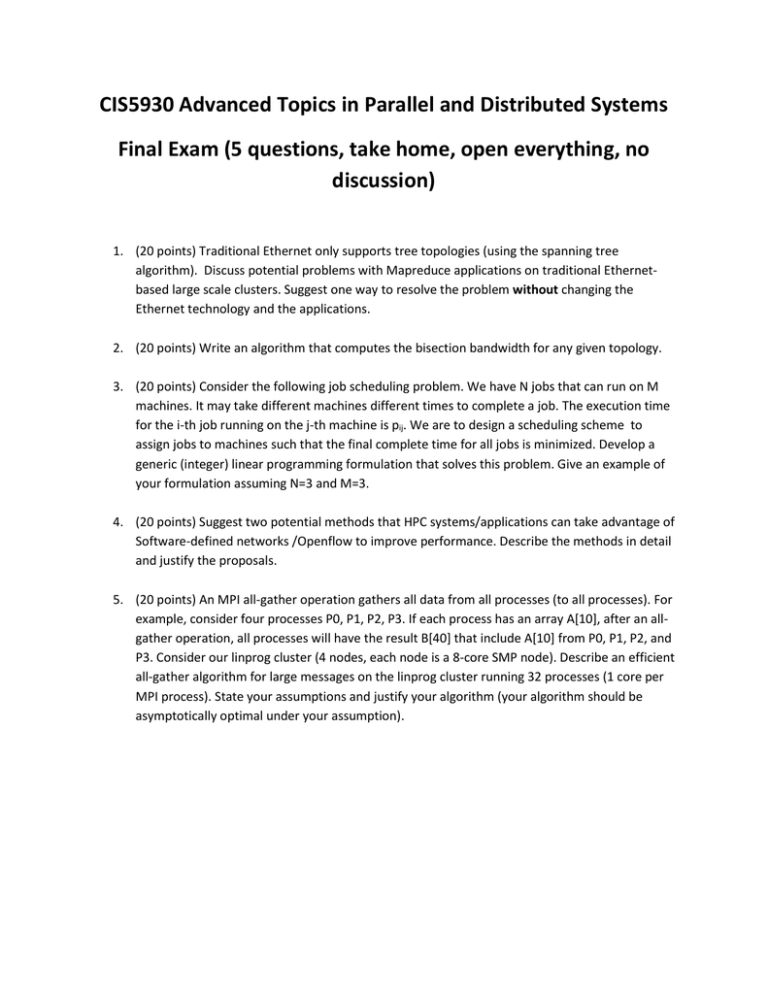
CIS5930 Advanced Topics in Parallel and Distributed Systems Final Exam (5 questions, take home, open everything, no discussion) 1. (20 points) Traditional Ethernet only supports tree topologies (using the spanning tree algorithm). Discuss potential problems with Mapreduce applications on traditional Ethernetbased large scale clusters. Suggest one way to resolve the problem without changing the Ethernet technology and the applications. 2. (20 points) Write an algorithm that computes the bisection bandwidth for any given topology. 3. (20 points) Consider the following job scheduling problem. We have N jobs that can run on M machines. It may take different machines different times to complete a job. The execution time for the i-th job running on the j-th machine is pij. We are to design a scheduling scheme to assign jobs to machines such that the final complete time for all jobs is minimized. Develop a generic (integer) linear programming formulation that solves this problem. Give an example of your formulation assuming N=3 and M=3. 4. (20 points) Suggest two potential methods that HPC systems/applications can take advantage of Software-defined networks /Openflow to improve performance. Describe the methods in detail and justify the proposals. 5. (20 points) An MPI all-gather operation gathers all data from all processes (to all processes). For example, consider four processes P0, P1, P2, P3. If each process has an array A[10], after an allgather operation, all processes will have the result B[40] that include A[10] from P0, P1, P2, and P3. Consider our linprog cluster (4 nodes, each node is a 8-core SMP node). Describe an efficient all-gather algorithm for large messages on the linprog cluster running 32 processes (1 core per MPI process). State your assumptions and justify your algorithm (your algorithm should be asymptotically optimal under your assumption).
